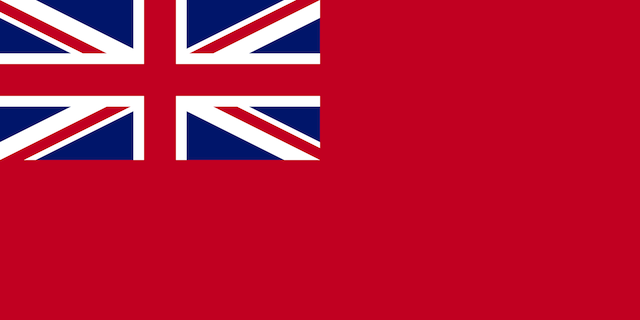United Kingdom - Yachting Essentials
UK Yachting Essentials
Electricity:
- Voltage: 230v
- Frequency: 50Hz
Water:
Available at all marinas.
Fuel:
Fuel berths at most marinas (or nearby).
When visiting an EU member state, the RYA recommends that recreational boaters with marked ‘red’ diesel purchased in the UK:
- Keep receipts for diesel purchased in the UK, to prove that it was bought in the UK, and request that your retailer marks them “duty paid”
- Log the date of refuelling and engine hours to reinforce these records; and
- Do not carry marked diesel anywhere other than in their craft’s main fuel storage tanks.
LPG:
Available from chandleries and some fuel stations.
Calor gas or Camping Gaz International widely available. GRP gas bottles also available in sizes 5kg and 10kg.
Calor Gas has confirmed (December 2023) that it will continue to supply 3.9kg propane and 4.5kg butane cylinders after having announced (in February 2023) it was phasing them out. See this news item for details.
Navigation:
There is no comprehensive list of military exercise areas available. There are submarine exercise areas associated with naval establishments (Plymouth on south coast – Faslane in Scotland and others).
Firing practice areas are marked on charts. Warnings given on Navtex and VHF marine broadcasts by local coastguard.
There are very few bridges that restrict access to seagoing vessels. Of those that open (e.g. Tower Bridge in London) no purpose in leisure craft entering. See relevant charts for details of other bridges, some open at specific times.
Some areas have been designated as Nature Reserves and Marine Protection Areas or Conservation Zones for the protection of wildlife. See Joint Nature Conservation Committee webpage and consult up-to-date charts.
Flag Etiquette:
British flagged boats fly an ensign not the national flag. Royal Navy ships fly White Ensign, merchant shipping and yachts fly Red Ensign. Some yacht clubs have a defaced Blue Ensign.
Whilst there is a tradition of raising and lower flags morning and evening, this is not strictly adhered to except in naval circles. Visitors must fly a courtesy flag below the starboard spreader for sailing vessels or on the deck mast for motor vessels.
Docking/Marinas:
Advance booking is not widely used.
In many UK harbors boats are expected to raft out. One should always ask permission before doing so. When rafted out and going ashore, never cross other boats via the cockpits, always walk across the bow deck.
Because of the tidal waters in UK harbors, both springs and shore lines must be used.
Visitors’ buoys are available in many locations and this is a common form of mooring, particularly in rivers. Most are private and will often be marked as such, however it is often possible to use a private buoy provided someone remains on board. Check that the mooring is suitable for the size and weight of your boat and take account of the tidal range.
There are no anchoring restrictions (apart from conservation areas – see restrictions for details), but again, you need to take account of the tidal range. Access ashore may be restricted by private landings or difficult/impossible at low water. Anchoring in rivers/river estuaries or in close vicinity to a harbor will be charged in popular yachting areas e.g. the South Coast and rivers on the East Coast.
Life rings and fire fighting appliances are normally provided in marinas, but there may be restrictions on the use of BBQs. Speed limits in marinas apply where marked.
Stations for sewage pump out exist in a few harbors mainly in popular yachting areas. Emptying of tanks is chargeable in some harbors. No requirement for holding tanks.
Nozzles used in UK have a tapering end. They cannot be used with deck fittings where the cap is permanently attached by a chain. Some harbour masters have a range of adapters available.
Haulout and Repairs:
Many marinas, boatyards and boat clubs offer winter storage ashore (mostly outside) or afloat and repair services. Travelifts and cranes are easily available. Under cover storage is rare and expensive. Cradles need to be hired, the use of the “Seaquip” type stand is extremely rare. Timber props are in common use.
All UK leisure boating areas have numerous facilities and in more remote locations help will be available within a reasonable travelling distance. This may not apply in the some Scottish Island areas.
Strong antifoulings are used in UK waters. Many products available in chandleries.
If you have information for this section, or feedback on businesses used, please let us know at editor@noonsite.com. We also welcome new information about businesses you have used (see Related Businesses).
Next Section: General Info: Timezone
Related to following destinations: United Kingdom
Country Navigation
Courtesy Flag Discounts


YachtFlags.com provides high quality courtesy flags that are manufactured in durable Knitted Polyester fabric. Knitted so that the fabric itself does not deteriorate in the constant movement that marine flags are usually exposed to, and polyester so that the flag does not weaken in the strong UV-light usually found in the main sailing areas of the world.
YachtFlags.com offers a discount to Noonsite members.
Use the coupon code NOONSITE_5A2B when checking out to get 10% off today.
Buy Now On YachtFlags.comMain Ports - United Kingdom
Courtesy Flag Discounts



YachtFlags.com provides high quality courtesy flags that are manufactured in durable Knitted Polyester fabric. Knitted so that the fabric itself does not deteriorate in the constant movement that marine flags are usually exposed to, and polyester so that the flag does not weaken in the strong UV-light usually found in the main sailing areas of the world.
YachtFlags.com offers a discount to Noonsite members.
Use the coupon code NOONSITE_5A2B when checking out to get 10% off today.
Buy Now On YachtFlags.comFormalities
Courtesy Flag Discounts



YachtFlags.com provides high quality courtesy flags that are manufactured in durable Knitted Polyester fabric. Knitted so that the fabric itself does not deteriorate in the constant movement that marine flags are usually exposed to, and polyester so that the flag does not weaken in the strong UV-light usually found in the main sailing areas of the world.
YachtFlags.com offers a discount to Noonsite members.
Use the coupon code NOONSITE_5A2B when checking out to get 10% off today.
Buy Now On YachtFlags.com



Hi Tori,
We are currently trying to work through the logistics of bringing a dog into the UK too. We are all still in Australia. It would seem that the only way to get our puppy into Britain is to travel via a designated port by approved means. For us it will mean taking a berth in Cherbourg and travelling by ferry to Poole with him, placing him in a boarding kennel, returning to Cherbourg then sailing back to Poole where we will reunite
Regards
Michael
I’m sailing from Norway to Britain with a dog. I’ve come to realize Shetland is a no go port. Is it at all possible for us to sail around Britain with a 35 kilo dog, that has all his relevant documents? He’s been to other European countries over the past 5 years with no problem. Any advice?
See the pet section for details please: https://www.noonsite.com/place/united-kingdom/view/pets/
I’m looking of buying a yacht but looking to live on it within either a marina or at a mooring. The yacht would be around 40 foot in length. I’m have trouble finding a marina that allows live aboard while in a marina. Would be grateful if someone can point me in the right direction.
Many thanks Chris
Hi Chris, 100% recommend you join the Cruising Association (CA) and ask their advice. They have a huge membership base in the UK and will be able to let you know the score re. living aboard there.
From my own experience a week ago, I can add Yarmouth in the Solent as a port for supply/shelter during corona shutdown for yachts in transit.
IMPORTANT INFORMATION FOR YACHTS VISITING THE UK
It is important to remember that the UK is not part of the Schengen Area Agreement, so it is necessary for any boat with non-EU nationals on board to clear with UK Immigration (many non-EU visitors would be granted a 6-month visitor’s visa).
Failure to report means you are illegal immigrants!
EU citizens automatically have the right to stay (at the moment). The UK leaving the EU will change many regulations.
Non-EU citizens can only freely move within the Schengen Area (for 90 days in any 180 day period) once cleared into their first designated Schengen country. EU countries outside Schengen must be cleared into in the usual way.
It is not unusual for those from outside Europe do not understand the difference between the Schengen Area and the EU. For a full explanation see noonsite’s EU page – http://www.noonsite.com/General/EuropeanUnion